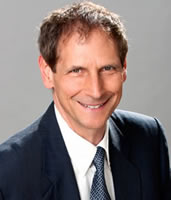The decedent signed a life insurance beneficiary form a few weeks after having brain surgery. The plaintiff claimed the signature was not executed by the decedent. The defense claimed that the decedent had signed the document and the differences are attributed to the effects of brain surgery.
Several years ago, I was retained by the plaintiff's counsel where the plaintiff challenged the authenticity of the decedent's signature on a life insurance beneficiary form. The scope of my retention was to determine the authenticity of the signature on the life insurance beneficiary form.
Background of the case
In October, 2012 the decedent underwent brain surgery for a glioblastoma tumor. Approximately one month after the surgery in November, 2012 the decedent allegedly signed a beneficiary form leaving the proceeds from a life insurance policy to a guardian. Originally a family member was designated as beneficiaries of the life insurance policy. A few weeks after the beneficiary form was signed, the decedent died. Upon her death family members contacted the life insurance company in anticipation of receiving the proceeds from the policy.
Life insurance company notified the family members that a new beneficiary form had been executed by the decedent. Therefore, the proceeds from the life insurance policy would be distributed to the caretaker rather than the family members.
Family members hired an attorney to challenge the signature on the life insurance beneficiary form. They noticed the substantial difference between the decedent's known signatures and the signature on the life insurance beneficiary form.
The defense claimed the signature on the beneficiary form differed from the decedent's known signatures because of the recent brain surgery. They contended the brain surgery had adverse effects on the decedent's handwriting. An established concept in forensic document examination is when a consistent difference occurs between the questioned signature and the known signatures, there is a clear indication of two writers. Ordway Hilton, an established authority in questioned documents stated, "Repeated small differences establish clearly that two specimens are clearly the work of two individuals despite a great number of general similarities." 1.
Methodology
Using generally accepted forensic document examination techniques, I compared and contrasted the questioned signature on the life insurance beneficiary form with the known signatures of the decedent. Although there were similarities, there were many differences. The differences were not explained within the range of variability of the decedent's known writing. Generally accepted practices in forensic document examination state this indicates the questioned signature was not written by the decedent.
Due diligence required I investigate whether the differences were explainable by the brain surgery. If the brain surgery could affect the decedent's handwriting, the differences could be explained by surgery.
As a forensic document examiner, I am not familiar with the potential impact of brain tumor surgery on the portions of the brain that affect handwriting. I have neither training nor education in the science of brain neurology. I contacted a neuropsychiatrist at the University of California at San Diego to learn whether literature exists describing the effects of surgery for glioblastoma tumors and handwriting. He referred an article in the journal Surgical Neurology.2 The Journal article states there is generally no impact to writing from this surgery. If the tumor is in specific areas of the brain there can be an impact to writing.
Opinion
After examining the similarities and differences between the signature on the beneficiary form and the decedent's known signatures, I determined the differences clearly outweighed the similarities.
The study results in the journal article states that this brain surgery rarely has any effect on handwriting.
My opinion was the decedent probably did not write the signature on the life insurance beneficiary form. The term "probably did not write" is defined in both the ASTM and SWGDOC standards used by forensic document examiners. The term means it is more likely than not the questioned signature was not written by the person whose name appears in the signature.
1Hilton, O. (1982). Scientific Examination of Questioned Documents, Second Edition. Elsevier Science Publishing, Inc. New York. P. 161.
2Scarone, P, et al. (2009). Agraphia after awake surgery for brain tumor: new insights into the anatomo-functional network of writing. Surgical Neurology. 72, 223 - 241.
Mike Wakshull, MS, CQE, PMP, CISA, is a forensic document examiner based in Temecula, CA. He holds a graduate school certificate in forensic document examination from East Tennessee State University and a master's degree in Technology Management from the University of Denver. Mike is Chair of the 2012 National Association of Document Examiners Conference in San Diego.
©Copyright - All Rights Reserved
DO NOT REPRODUCE WITHOUT WRITTEN PERMISSION BY AUTHOR.










